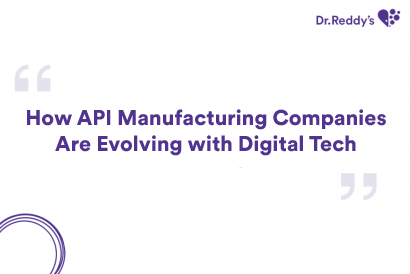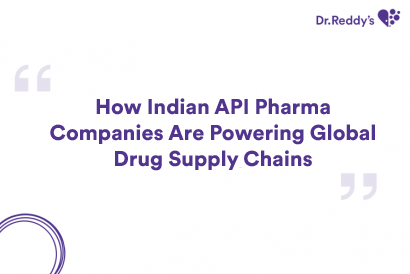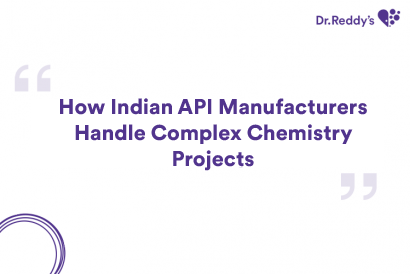Innovative Approaches to API Production in 2024: Shaping the Future of Pharma Companies
The landscape of API (Active Pharmaceutical Ingredient) production is transforming in 2024, driven by a focus on efficiency, speed, and cost-effectiveness. Here are some vital, innovative approaches shaping the future of pharma companies:
1. AI-powered Design and Optimization:
Machine learning algorithms are being used to analyze vast amounts of data on chemical reactions, materials, and processes. This allows for in-silico (computer-aided) design of new, more efficient API synthesis methods. AI can also optimize existing processes, minimizing waste, reducing reaction times, and improving overall yield.
From In-Silico Design to Reality: Imagine AI designing novel APIs from scratch! Machine learning algorithms analyze massive datasets on chemical reactions, materials, and existing APIs. This allows for "in-silico" design, predicting optimal synthesis pathways for new drugs. Furthermore, AI can refine existing processes, minimizing waste and reaction time and significantly reducing costs.
Beyond Efficiency: Personalization and Safety: AI isn't just about streamlining processes. It can also personalize API production for specific patient needs. Imagine creating customized APIs for targeted drug delivery or tailoring APIs to individual patient metabolisms. Additionally, AI can analyze vast datasets to identify potential safety concerns during API development, leading to safer and more effective drugs.
2. Continuous Manufacturing:
Traditional batch manufacturing involves discrete steps with pauses for cleaning and setup. Continuous manufacturing, on the other hand, operates as a seamless flow process.
Breaking Free from Batch Production: Traditionally, API production involved batch processes with pauses for cleaning and setup. This downtime translates to lost time and resources. Continuous manufacturing disrupts this model. It operates as a seamless flow process, where raw materials are continuously fed in, and the API is constantly produced. This method offers several advantages:
Reduced Production Time: No downtime for cleaning or setup translates to significantly faster production cycles, accelerating drug delivery to patients.
Increased Efficiency: Continuous processes are more efficient, utilizing equipment and resources more effectively.
Lower Overall Costs: Continuous manufacturing leads to substantial cost reductions for pharma companies by minimizing downtime and waste.
This method offers significant advantages like reduced production time, increased efficiency, and lower overall costs.
3. Advanced Automation and Robotics:
Repetitive tasks in API production are being increasingly automated with robots and intelligent machines. This improves consistency, reduces human error, and allows for 24/7 operation.
Repetitive Tasks, Meet Your Replacement: Repetitive tasks like handling materials, mixing chemicals, and packaging final products are becoming increasingly automated. Robots and intelligent machines perform these tasks more precisely and consistently, minimizing human error. This allows for:
24/7 Operation: Automated processes can run continuously, maximizing production capacity and minimizing downtime.
Improved Quality Control: Removing human error from repetitive tasks leads to a more consistent and reliable API production process.
Focus on Higher-Level Tasks: By automating routine tasks, skilled personnel can focus on more critical activities like process development, quality control, and innovation.
Automation also frees up skilled personnel to focus on higher-level tasks like process development and quality control.
4. Digital Twins and Predictive Maintenance:
Creating digital twins – virtual replicas of physical API production facilities – allows for real-time monitoring and simulation of processes.
Virtual Replicas, Real-Time Insights: Imagine a digital replica of your entire API production facility! This "digital twin" virtual model mirrors the physical plant in real-time. Sensors in the real facility feed data into the digital twin, allowing for:
Predictive Maintenance: By analyzing data from the digital twin, potential equipment failures can be identified before they disrupt production. This allows for proactive maintenance, minimizing downtime and production delays.
Process Optimization: Running simulations on the digital twin helps to optimize production processes, identify bottlenecks, and improve overall efficiency.
This enables predictive maintenance, where potential equipment failures can be identified and addressed before they disrupt production.
5. Cloud-based Collaboration and Data Sharing:
Secure cloud platforms facilitate collaboration between researchers, developers, and manufacturers across geographical boundaries.
Breaking Geographical Barriers: Secure cloud platforms are facilitating seamless collaboration between researchers, developers, and manufacturers across the globe. This removes geographical barriers, fostering faster innovation and knowledge sharing. Imagine a researcher in India collaborating with a European developer, all working on the same API production process in real-time! This collaborative approach offers several benefits:
Faster Time-to-Market: Cloud platforms accelerate the development and production of new APIs by streamlining communication and collaboration.
Enhanced Innovation: Shared knowledge and expertise across geographical boundaries lead to faster and more effective innovation in API production methods.
This allows faster innovation and knowledge sharing, leading to more efficient API production.
Benefits for Pharma Companies:
These innovative approaches offer pharma companies a multitude of benefits, including:
These innovative approaches offer a glimpse into the future of API production, shaping a more efficient, cost-effective, and agile pharma industry. By embracing these advancements, pharma companies can unlock several benefits:
Faster Time-to-Market: New drugs reach patients quicker, addressing unmet medical needs promptly.
Reduced Production Costs: Streamlined processes and automation significantly mitigate costs for pharma companies.
Improved Product Quality and Consistency: AI-powered design, continuous manufacturing, and advanced automation ensure consistent and high-quality API production.
Enhanced Agility and Adaptability: Cloud collaboration and data sharing foster a more agile environment, allowing pharma companies to adapt quickly to changing market demands and emerging technologies.
The future of pharma is bright, fueled by continued innovation in API production. By harnessing the power of AI, automation, and collaborative platforms, pharma companies can ensure a robust and competitive future, ultimately delivering life-saving medications to patients faster and more efficiently.
By embracing these advancements, pharma companies can stay ahead of the curve and ensure a robust and competitive future.
- Call us:
 +91 40 49002253
+91 40 49002253
Contact Us
请填写以下表格,我们会尽快与您联系.





